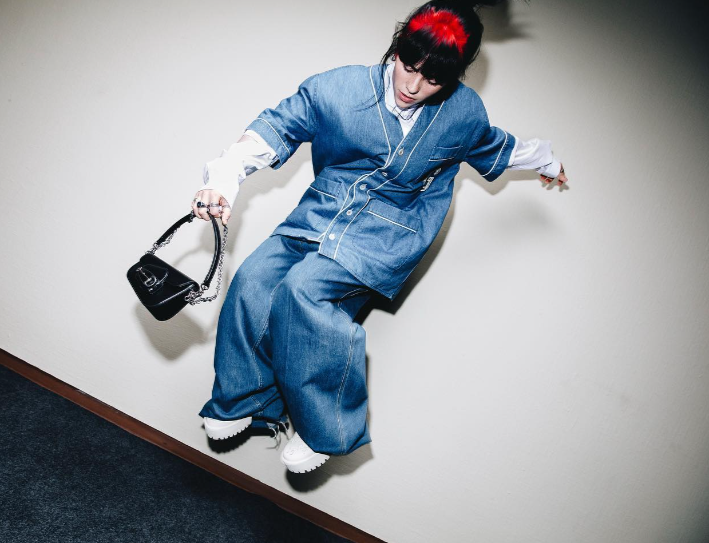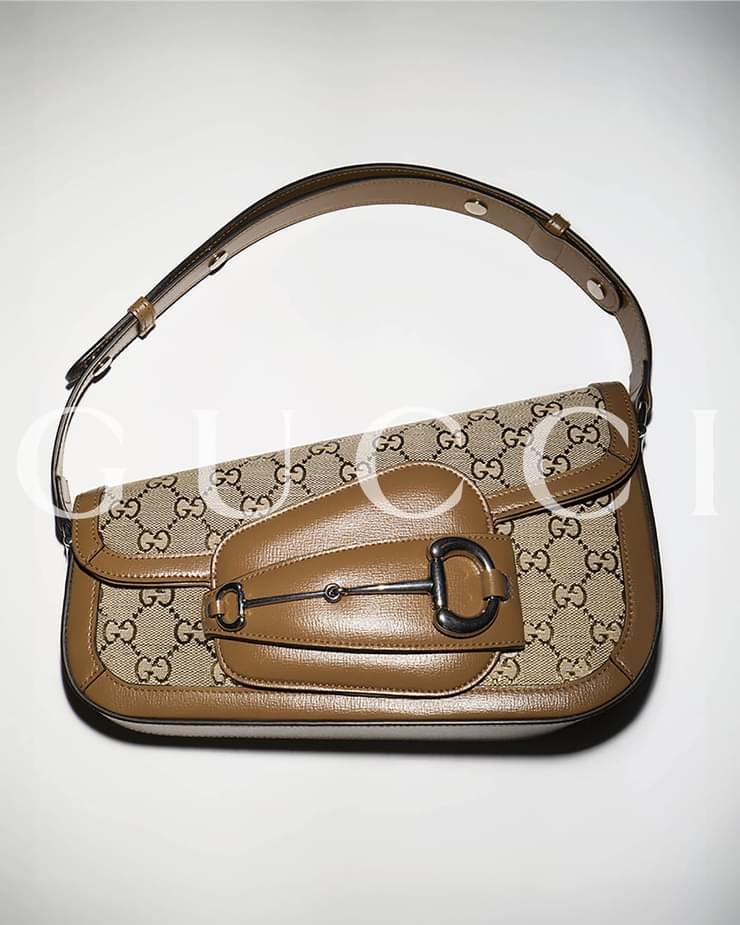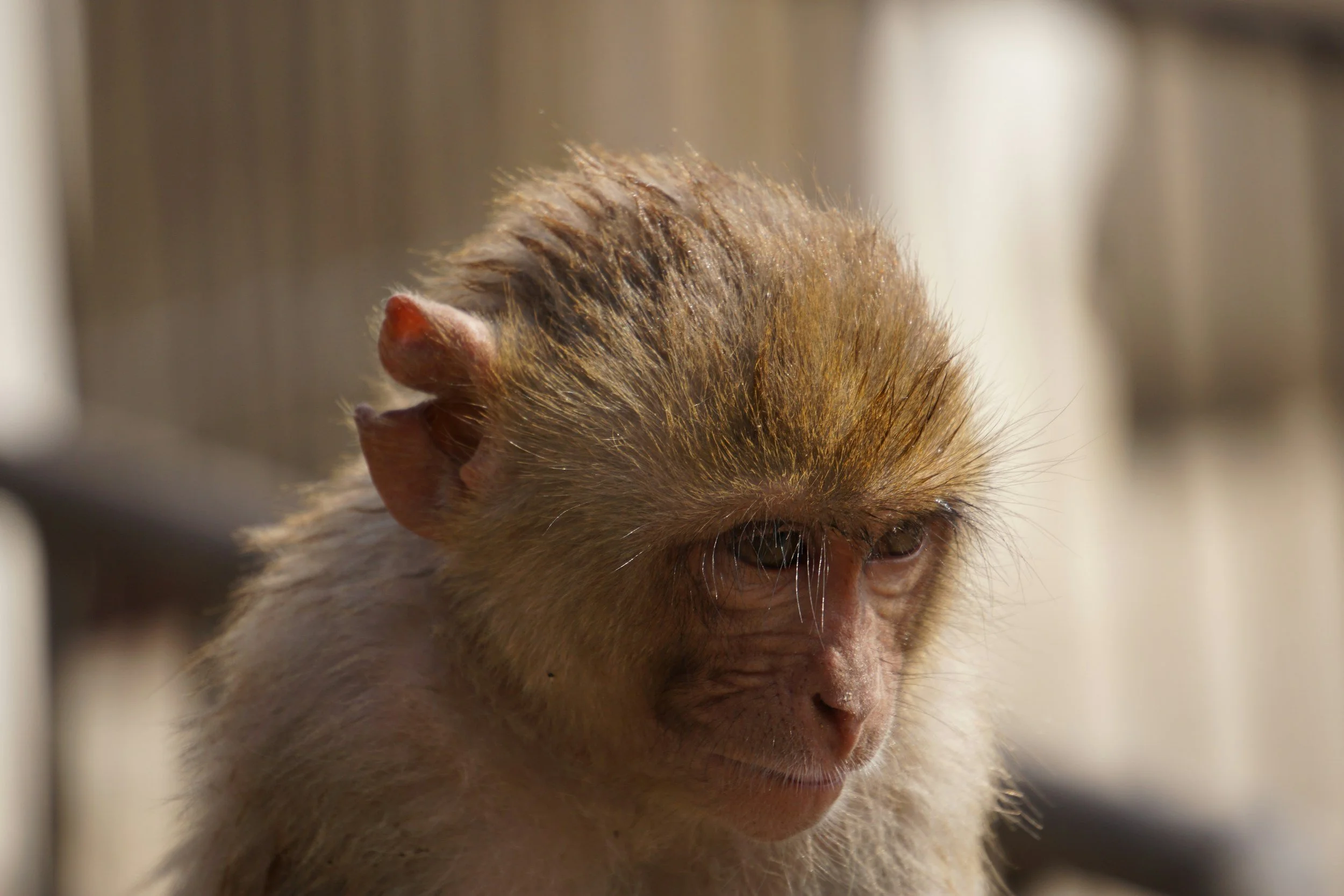Billie Eilish Debuts Gucci’s Luxury New Animal-Free Leather Bag
The reimagined Horsebit 1955 is made using a “ground-breaking” leather-like material, which is made primarily from renewable sources and has a lower impact than using animal skins.
Credit: Tyrell Hampton/Gucci
Longtime animal advocate and Grammy Award-winner musician Billie Eilish has teamed up with luxury fashion house Gucci to launch the brand’s first bag using a vegan alternative to animal leather.
Gucci’s new Horsebit 1995 bag is made from an innovative material called Demetra. First used in a line of Gucci sneaker styles back in 2021, Dematra combines up to 77 percent plant-based raw materials, with viscose, wood pulp and corn-based plastic. Crafted in-house at Gucci’s Italian factory, the material undergoes the same processes for tanning that give the materials its durability and luxurious finish.
Available in both a black and a monogrammed version, the animal-free reimagining of the Horsebit 1955 bag was born out of Gucci’s desire to explore and innovate materials for the future, the brand says.
The Horsebit 1955 bag in Demetra. Credit: Gucci
21-year-old Eilish, known for using her platform to promote environmental and animal issues, was the first to get their hands on the new bag, and appeared in promotional photos for the item.
Fashion publication Vogue described the new vegan bag as “a major milestone for [Gucci’s] sustainability efforts, given animal leather’s large carbon footprint.”
Fashion is embracing leather alternatives
The heavy environmental footprint of leather production is leading more and more fashion brands like Gucci to embrace animal-free leathers, which are often made from innovative next-gen materials.
These include materials like Piñatex, a sustainable, vegan leather derived from pineapple leaves, which has featured in collections like Nike’s ‘Happy Pineapple’ line of sustainable sneakers, and Zara’s recent range of pineapple-leather sneakers, sandals, and accessories.
Nike’s pineapple-leather shoes. Credit: NIKE
Mycelium-based leather - known as mushroom leather - is another sustainable material tipped to compete with animal leather. Earlier this year, it was announced that the world’s first commercial-scale fine mycelium plant will be opening in South Carolina, which will produce millions of square feet of mushroom-leather made by animal-free material company MycoWorks, who has already worked with luxury brands like Hermès.
Why We Need Solutions To Animal-Leather
Soon to be valued at nearly $128.61 billion, the global animal leather industry slaughters over one billion animals every year.
Contrary to popular belief, animal leather is not simply a “by-product” of the meat industry - it’s a co-product. Animal leather is in itself a fully mechanized, independent industry that has a detrimental impact on the planet, animals, and the factory workers involved in its production.
We Have A Favor To Ask…
Species Unite amplifies well-researched solutions to some of the most abusive animal industries operating today.
At this crucial moment, with worldwide momentum for change building, it’s vital we share these animal-free solutions with the world - and we need your help.
We’re a nonprofit, and so to keep sharing these solutions, we’re relying on you - with your support, we can continue our essential work in growing a powerful community of animal advocates this year.
More stories:
Species Unite
A collection of stories of those who fight the good fight on behalf of animals.






As plant-based diets gain scientific backing, critics say the meat industry is deploying coordinated tactics to shape public opinion.